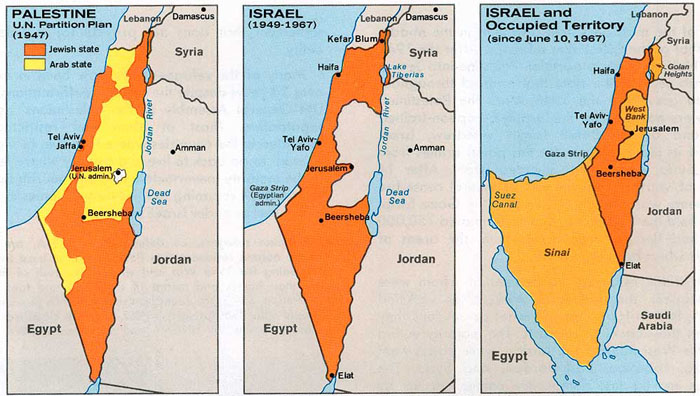Mideast 1683, map from UT
Palestine 1920, map from UT
Peel Plan 1937
Palestine 1947 from UN
|
Mideast 1683, map from UT
|
|
|
|
Palestine 1920, map from UT
|
|
|
|
Peel Plan 1937
|
|
|
|
Palestine 1947 from UN
|
 Israel 1947-67, map from UT
|
|
|
|
Israel 2005, map from CIA
|